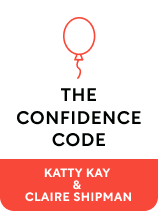

This article is an excerpt from the Shortform book guide to "The Confidence Code" by Katty Kay and Claire Shipman. Shortform has the world's best summaries and analyses of books you should be reading.
Like this article? Sign up for a free trial here .
What are some things you feel confident about? What do you think gives you that confidence? Where does confidence stem from in general?
According to Katty Kay and Claire Shipman, the authors of The Confidence Code, real confidence stems from mastery. You can only be truly confident about your ability to do something because you have the hard evidence for it—you’ve worked hard and pushed through the difficulties to master it.
In this article, you’ll learn about the psychology of confidence: what confidence is, why it’s important, and how women seem predisposed to have less of it than men.
What Is Confidence?
Confidence is believing so strongly that you can do something that you’re driven to actually do it. The belief stems from mastery—you know you can do something because you’ve worked hard and pushed through past difficulties and failures.
- For example, when Katty learned to kiteboard, it was challenging. The kite would drag her around, she’d fall, she’d get frustrated, and she’d get sore. After a few years of practice, she figured out how the sport worked, and now she can do it confidently.
Confidence is contagious—once you’ve mastered something, this gives you the confidence that you can master (or at least try) something else.
- For example, mastering kiteboarding gave Katty the confidence to try another extreme sport.
Statistical Confidence
Neuroscientist Adam Kepecs studies “statistical confidence”—how certain we are about a decision we’ve already made; it has two “faces:”
1. Objective. This is simply the measure of how certain you are about something.
- For example, Kepecs measures objective confidence in rats using a delayed reward system. If a rat correctly identifies a smell (by sticking its nose into the correct hole), it’ll be rewarded with a drop of water, but the water won’t appear right away. This tests how certain the rat is—if it’s sure it’s correctly identified the scent, it knows the water will be coming and will wait endlessly. If the rat isn’t certain, it can restart the test, but to do that, it forfeits the drop that might be coming and the time it already spent waiting.
2. Subjective. This is the emotional feeling of confidence.
Related Qualities
The psychology of confidence is not a clear-cut subject. There are several other terms that people often use synonymously with “confidence,” but while these qualities are related to confidence—they can help or hinder it—they aren’t the same thing because they lack a to-do or action element.
Quality #1: Self-Esteem
Self-esteem is a belief that you have value; it’s an attitude about yourself. It’s usually more general than confidence, as confidence is often tied to specific actions or decisions about achievement.
Self-esteem supports confidence because if you believe you’re valuable, you won’t assume that other people don’t.
High self-esteem and high confidence often go hand and hand, especially when self-esteem is based on abilities or talent.
- For example, if you think you’re valuable because you’re good at your job, you’re likely confident about your job.
See the Appendix for a self-esteem assessment.
Quality #2: Optimism
Optimism, like self-esteem, is an attitude, and optimism is interpreting events to predict the most favorable outcome. It’s unrelated to a sense of self—it doesn’t stem from self-esteem or belief that you can do something. It also doesn’t drive action; instead, it’s a way of interpreting events and observing surroundings, whether those are specific events or the general workings of the universe. (Note: Some psychologists, such as Martin Seligman, do attach action to optimism.)
- (Shortform example: Optimism would spur the belief: “This party is going to be fun and enjoyable.” Confidence would say: “I am going to do something to make sure I enjoy this party.”)
Optimism supports confidence because it’s easier to take action if you think it will turn out successfully.
Optimists notice the good things happening to or around them, so good things seem numerous, and optimists are thankful.
Quality #3: Self-Compassion
Self-compassion is when we judge ourselves by the same standards as our friends—we acknowledge that by nature, humans aren’t perfect and fail sometimes.
Self-compassion supports confidence because it softens failure. It’s easier to take a risk if you know it won’t be the end of the world if it doesn’t work out. It’s also easier to be confident if you acknowledge that you don’t always have to be above average or the best all the time. (If you’re too scared of not being perfect, you won’t try.)
Quality #4: Self-Efficacy
Self-efficacy is similar to confidence—it’s the belief that you have the capacity to succeed at a particular task. Some experts consider this synonymous with confidence; others think that self-efficacy is for specific tasks and confidence is more general.

———End of Preview———
Like what you just read? Read the rest of the world's best book summary and analysis of Katty Kay and Claire Shipman's "The Confidence Code" at Shortform .
Here's what you'll find in our full The Confidence Code summary :
- An examination of the art and science of confidence
- Why women have more trouble accessing confidence than men
- How to build confidence in yourself and others






